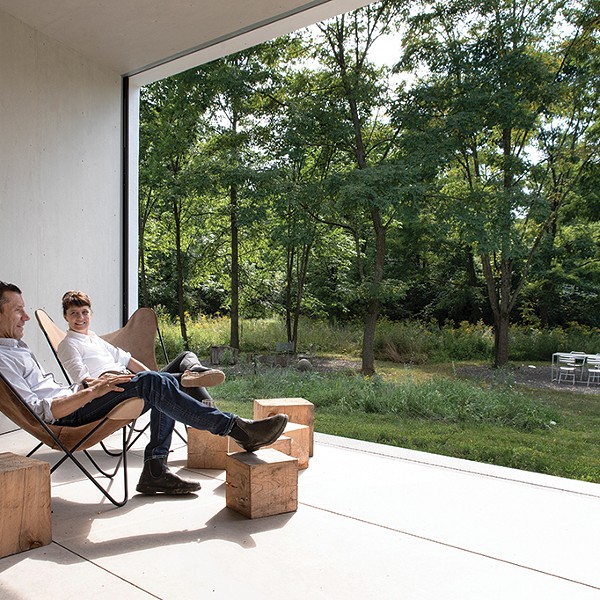Sheik: I think that that aspect of it will exist later when we do
the actual production in San Diego. At New York Stage & Film, it’s a
great environment and they have great resources there, but you really
don't have time to do costumes or extensive lighting or even that
much staging. So, it’s really more about your continuing to work out
structural issues and just issues of what the material is and
possibly tweaking that and fixing that so you’ve got a really good
skeleton when you go into it where you have a real production.
Chronogram: Did you have a role in the casting?
Sheik: I cast the band and the two singers – I didn’t really cast
them, they're just my coterie of musician friends that I work with.
The actors in the scene, they don't sing any of the songs, they just
act in the scenes. The people singing the songs are these ghosts, and
the ghosts are also the musicians who are playing the songs. So the
ghosts are the Greek chorus, for lack of a better word, that are
commenting on what’s going on in the action of the human world
they’re observing.
Chronogram: From the start, you recount the misery of each character,
in the song "It's Better to be Dead." Are you sounding from the
beginning a note of pessimism, of inevitable tragedy, or is there hope?
Sheik: [laughs] I think there certainly is hope in the piece
ultimately. I don't know. Like, I love Lars von Trier, but I don't
like this idea of hopeless art. That's hard for me. But I think that
this idea that we’re in the first song and you're describing the
pathos of these characters, it's from the perspective of this
slightly sardonic ghost who’s plainly cynical. And he’s also singing
this stuff with a little bit of a wink. You're also meant to be
poking fun at the human frailty of these characters. Because they're
ghosts. In some way, it behooves us to feel above it all. They don't
have the same agency that human beings do. It's kind of like they're
sour grapes.
Chronogram: They sing out to the little boy Christopher, but they
don't take any role in the way the drama unfurls?
Sheik: No, that’s the thing. Like I said, they don't really have
agency per se. They affect Christopher – or we think they affect
Christopher. I mean, here's the thing; here’s the $64,000 question:
Are ghosts real? Or are they a manifestation of Christopher’s fears?
What are they? That’s the question we want people to be asking
throughout the piece.
Chronogram: But you don't answer it yourself.
Sheik: That’s no fun. [laughs] I’d much rather like the audience to
argue and wonder and be curious about that.
Chronogram: You take us to a lighthouse in Maine. You’ve said that
growing up in Hilton Head has insured that in you. But what other
aspects of the narrative – where do they originate?
Sheik: The story is Kyle’s story; he wrote the book. You'd have to
ask him about some of the specific things that influenced him. For
me, my connection to it was generally this idea of lighthouses and
the mood of the lighthouse and this thing of just telling ghost
stories and the kind of pre-adolescent fun of being freaked out or
spooked by apparitions in general. That’s a universally fun material
to use as an environment for a story.
Chronogram: Working with Kyle and working with Steven – what
different parts of your craft or your psyche did Kyle draw out?
















